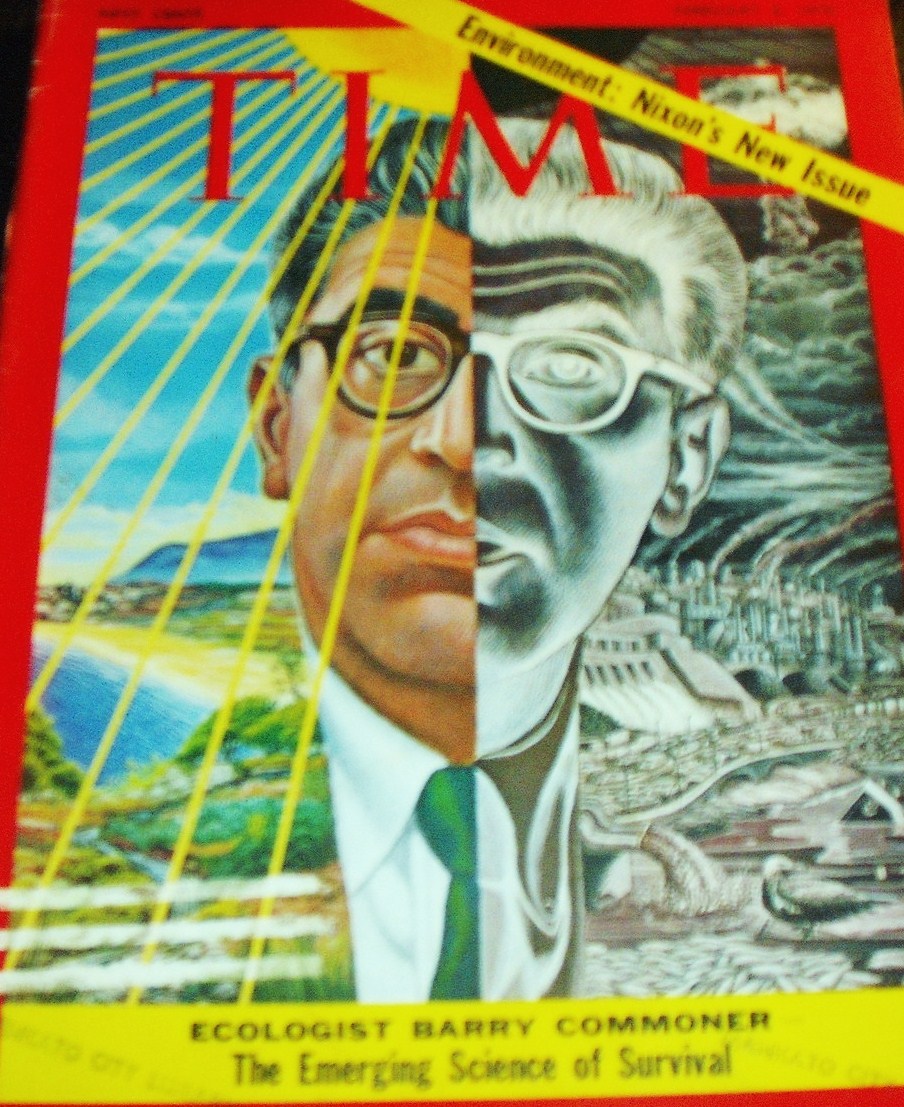
Barry Commoner was uncommon. He was a scientist who acted on his belief that a scientist has a responsibility to society. Commoner made the appropriate connections between social justice and environmental stewardship, sustaining Rachel Carson's appeal to preserve the planet. His death is a reminder how fast progress was during that year when his picture was on the cover of Time, 1970. In that year 1970 we had Earth Day and the Clean Air Act. President Nixon appointed William Ruckelshaus as the first head of the Environmental Protection Agency. We had bipartisan support for environmental stewardship and a dozen nonprofits were created around that time pursuing green goals.
What happened then? The oil crisis of 1971-72 ended the consensus. It set in motion inflationary pressures that created revolts like Proposition 13 in California and led to the Reagan election in 1980, tight money and a recession under the great central banker Paul Volcker, and then to a decade of tax cuts, domestic spending cuts, and debt-financed increases in military spending.
Yes, there was some more progress in the U.S. and overseas. In Japan, for example, the "Pollution Diet" enacted far-reaching laws in the wake of the outbreak of Minamata disease. In the 1980s and 1990s, environmental organizations kept up the pressure to raise standards. Advances continued worldwide on energy efficiency. Renewable energy prices fell and usage grew of wind and solar and other alternative energy sources. Corporations have voluntarily introduced environmental reporting and innovations.
But environmental progress made in the industrialized countries has been offset by the impact of the growth of manufacturing in China and India and other emerging economies. Hundreds of millions of people have risen from poverty, imposing huge new burdens on the earth. The optimism of many, including myself, about the future of environmental initiatives back in 1970 has given way to a hope that slow-but-steady progress will avert the worst of the scenarios that Commoner and others warned against.
The challenge ahead is how to manage the environmental cost of the rise of so many of world's poor to a decent middle class. Setting a price for carbon continues to be a key to an answer. There was a moment of hope that the 111th Congress would do this. Let's hope Senator Maria Cantwell's excellent proposal for upstream carbon pricing may get a better look in 2013.
This is Green Edge 15 in the Green Edge Series.
